Guarana Benefits: 8 Health-Boosting Reasons To Try It
This fruit from South America can do wonders for both your physical and mental health.
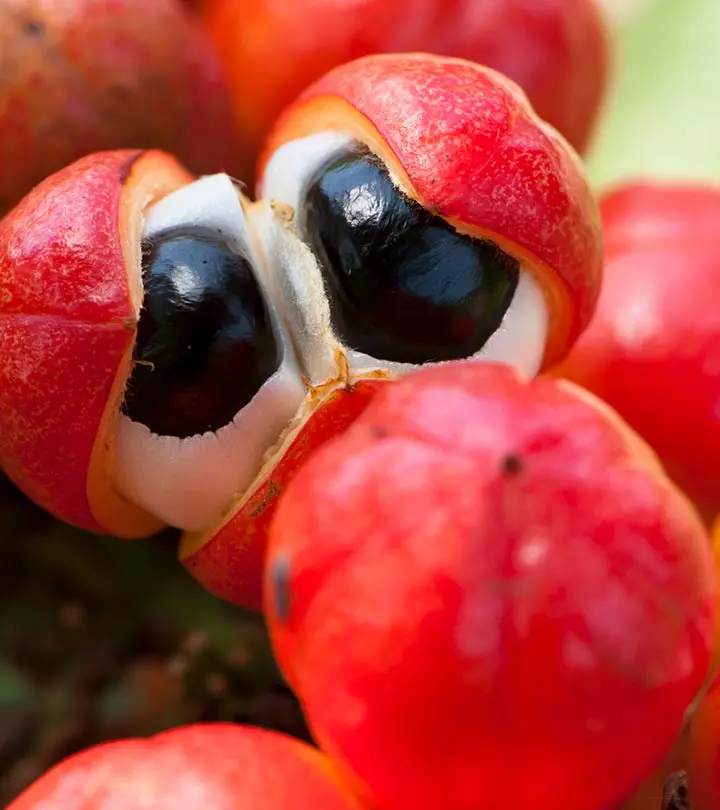
Image: iStock
Guarana is native to Amazon’s rainforest. This produce in the region is bounty and exotic. Countries like Venezuela, Colombia, and Brazil benefit the most from this produce.
It is an integral part of traditional medicine in South American countries. Guarana is rich in caffeine. Hence, it alleviates pain and promotes neurostimulation and weight loss. It has many other health benefits.
Continue reading to learn further about the benefits, facts, rituals, and possible risks associated with guarana.
 Know Your Ingredient: Guarana
Know Your Ingredient: GuaranaWhat Is It?
A red or brown fruit with black seeds with a sweet and bitter flavor.
What Are Its Benefits?
It may alleviate pain, improve memory, cleanse the scalp, and elevate mood.
Who Can Use It?
Anyone can consume this except people with anxiety and those on antidepressants or blood thinners.
How Often?
You can consume 50-75 mg daily.
Caution
Avoid consuming guarana if you are pregnant or breastfeeding. Overconsumption of guarana may cause restlessness, upset stomach, headaches, and nausea.
In This Article
What Is Guarana? Why Is It So Special?
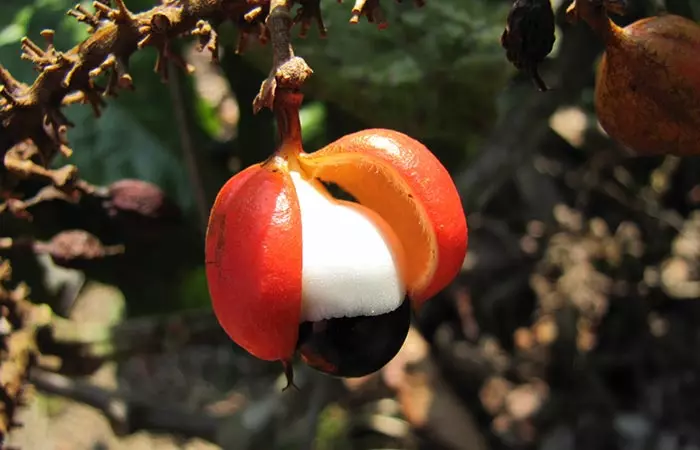
Guarana is a caffeine-rich fruit that is native to the central Amazon basin. It is well known for its medicinal properties. It grows in Brazil, Venezuela, Colombia, Ecuador, Peru, Republic of Guyana, and some other surrounding countries.
The plant, seeds, and fruits of guarana are used in traditional medicine and are also linked to many tribal traditions.
Traditionally, its roasted seeds and raw fruits were used to make beverages combining maté and other herbs. These drinks are said to act as stimulants, aphrodisiacsi Any substance, like a drug or food, that stimulate sexual desire, performance, arousal, or pleasure in people. , painkillers, memory boosters, antidepressantsi It refers to a substance that may help reduce symptoms of depression and anxiety disorders. , and anti-aging and antibacterial agents.

The fruit of guarana (Paullinia cupana Kunth.) looks very beautiful. It has a red, winged outer case that encases white flesh. The flesh holds one or two black or dark brown seeds that are responsible for most of guarana’s goodness.
Liz Caskey, a blogger, has tried a soda made with Guarana and shared her experience in a blog. She says, “I [fell] in love with Guaraná in Brazil. Made from a tall climbing plant found in the Amazon called Guaraná, it conveniently contains twice as much caffeine as coffee and is a big energy booster. In Brazil, they love to convert this berry into soft drinks. I loved it ice cold on hot days on the beach in its diet form. You can use it as a mixer in lieu of club soda or ginger ale (i)”.
 Trivia
TriviaAt one glance, the fruit resembles an eyeball and is known to exert positive effects on ophthalmic health. How true is it? What are the other benefits of guarana? Find all these answers in the next section!
Mind-blowing Guarana!
- Guarana seeds are known to contain the highest natural dose of caffeine in the world (2%-8%)
- These seeds also contain an active ingredient called ‘guaranine’ that is structurally similar to caffeine.
- Many weight loss and health drinks contain guarana extracts because it has antioxidant, fat burning, and appetite-controlling properties.
- Guarana is added to processed water and is consumed daily as a ritual among the tribes around the Amazon river. This drink is said to give them strength, prevent hunger pangs, and increase urine output (diuretic).
Key Takeaways
- Guarana can help reduce anxiety, improve cognitive performance, cleanse the scalp, and aid in weight management.
- The recommended dosage of guarana is between 200 to 800 mg.
- Excess consumption of guarana may cause hypersensitivity and nausea.
Why Should You Have Guarana?
1. Helps In Appetite Suppression

Guarana is rich in bioactive compounds like caffeine, theobromine, theophylline, tannins, saponins, catechins, epicatechins, and proanthocyanidins.
When teamed with yerba mate and damiana, guarana managed to suppress appetite in obese women. In other words, their hunger pangs and desire to eat reduced, leading to weight loss (1).
Guarana has also been found to control the expression of genes that are involved in fat accumulation. It downregulates the expression of pro-adipogenic genes while promoting the expression of anti-adipogenic genes (2). Anecdotal evidence suggests that this fruit may also boost metabolism due to its caffeine content, which can aid weight management.
Hence, it can be used to stimulate healthy weight loss in obese individuals and treat eating disorders.
2. Stimulant And Energy Boosting Effect
Along with caffeine, guarana has tannins, alkaloids, catechins, and epicatechins. This is why it has many stimulant mechanisms.
It mobilizes calcium, helps in the binding of caffeine to its receptors in the CNS, triggers the production of ATP (energy), and ultimately improves cognitive performance, concentration, and alertness.
Research says that it is the cumulative effect of caffeine along with other active components that make guarana an effective stimulant for vitality.
Guarana has no significant effects on long-term psychological well-being, anxiety, and mood (3), (4). Therefore, it is used in many energy drinks and dietary supplements to increase endurance for workouts and daily tasks.
3. Manages Anxiety And Neurodegenerative Disorders

Guarana powder can have protective effects on your brain and nervous system. It prevents amyloid plaque formation (or accumulation) and protein glycation, reduces oxidative stress, eliminates reactive oxygen species (ROS or free radicals), and decreases acetylcholinesterase activity.
All these effects prevent neuronal death, thus proving beneficial for treating cognitive disorders like Alzheimer’s, Parkinson’s, and Huntington’s diseases in model organisms.
Thanks to its interesting phytochemical composition, guarana improves memory and lifespan of organisms suffering from anxiety despite having a high caffeine content (5). Thus, it may be a beneficial ingredient to improve brain function.
4. Antibacterial Properties
Tannins make up a significant fraction of the bioactive ingredients in guarana. Along with other phytochemicals, tannins pose a threat to several notorious bacterial strains, such as MRSA (methicillin-resistant Staphylococcus aureus), Streptococcus mutans, and Streptococcus sobrinus.
Guarana also reduces the levels of pro-inflammatory compounds (viz. interferons and interleukins) in your body. This indirectly shows that it can be a potent anti-inflammatory agent and protect you from bacteria-induced hypersensitivity (6).
5. Might Improve Quality Of Life In Cancer Patients

Due to the antioxidant and anti-inflammatory effects of guarana, it can be used as an inexpensive and non-toxic alternative for treating fatigue, anxiety, anorexia, and other chemotherapy-induced disturbances.
Cancer patients undergoing chemotherapy and radiation therapy showed improvement in their behavior, appetite, body weight, and quality of life when given various forms of guarana extract.
Alcoholic extracts of guarana have free radical-scavenging, antimicrobial, antiproliferativei It refers to the property of a substance to inhibit the spread of malignant cells into the surrounding tissues. , and antineoplastici It refers to the property of a medicine or substance to prevent the growth and spread of cancer cells. properties.
Hence, along with treating the side effects, guarana could also help in limiting the growth and spread of certain cancers. However, there is scope for further in-depth research in this dimension (7), (8), (9).
6. Cleanses Skin And Scalp

The seeds of guarana have potent antioxidant and antimicrobial properties as they contain high amounts of methylxanthines (caffeine, theobromine, and theophylline), saponins, pigments, and choline.
Guarana is used in skin and hair products due to these properties.
Guarana can give you young and glowing skin, shiny hair that is free of dandruff, and also cure most of the pathogenic infections on your skin and scalp.
Some products used to treat cellulitis have also incorporated guarana and its various parts because of its high caffeine content (10).
7. May Aid Digestion
Guarana has been used globally in non-traditional medicine to regulate digestion. It has also been widely used as a tonic for the overall maintenance of the liver, kidneys, and heart (11). Its daily intake has also been associated with reduced obesity and enhanced metabolism among the elderly Amazonian populations. Also, guarana’s antioxidant effects may have gastroprotective properties, especially against intestinal damage. However, more research is needed in this regard.
8. May Improve Respiratory Health
Guarana’s high caffeine content may provide beneficial effects for overall respiratory health. Caffeine has anti-inflammatory and bronchoprotective properties, giving it the reputation of an effective ventilatory stimulant (12). It is also used to help relax breathing during exercise in highly trained athletes.
What is it in guarana that gives it the benefits mentioned above? Read the next section to find out.
Biochemical Profile Of Guarana
Apart from caffeine, guarana has many phytochemicals in its leaves, fruits, and seeds. The seeds of guarana contain methylxanthines, saponins, starch, polysaccharidesi Naturally occurring plant carbohydrates present in plant cells, and acts as a crucial source of energy for animal cells. , pigments, fats, acylglycerols, cyanolipids, and choline.
Its beans contain catechutannic acid, catechic acid, starch, protein, oils, calcium, phosphorus, and tannins, along with caffeine. So, it’s not just caffeine that’s responsible for its stimulant effect.
There is little to no information about the macro- and micronutrients present in guarana. So, until we find out more about its nutrient profile, let’s just eat guarana for its loaded phytochemical profile.
 Trivia
TriviaYou must be wondering – where can you get an exotic Amazonian fruit like guarana? Is it available in any other forms? Of course, it is! You will have to read the next section to find out.
Do You Get Guarana Everywhere? In What Forms Is It Available?
Importing guarana is an expensive affair. Climate also plays an important factor in keeping the fruits viable. It is most commonly found in the form of syrups, extracts, and distillates that are used as flavoring agents and a caffeine source in the soft drink industry.
A relatively cheaper and more practical way is to use its supplements.
The recommended dosage for guarana is about 200 mg to 800 mg (or 2-3 mg/kg). Long-term dosage is not recommended because it contains high levels of caffeine and other methylxanthines (13).
Wondering what can happen to your body if you exceed that limit? Or if you loved guarana too much and gorged on a whole basket of it? Nothing pleasant – that’s for sure.
Scroll down to find out the side effects and risks associated with guarana and its supplements.
What Are The Side Effects Of Guarana?
Most of the side effects of guarana stem from its abundance of caffeine. Since many health supplements and nutraceuticals contain significant amounts of guarana, it is imperative to keep the following risks and adverse effects in mind:
- Cardiovascular diseases (14)
- Difficulty during pregnancy and breastfeeding
- Hypersensitivity (allergies)
- Diarrhea
- Flatulence
- Nausea
- Dizziness
- May cause insomnia when taken in excess due to its caffeine content
- Cardiac arrhythmia and related troubles in athletes engaged in strenuous physical activity
What’s The Verdict?
Guarana is one of the most exotic contributions of the Amazon. In addition to its attractive appearance, this fruit has bountiful benefits.
It has potent antioxidant, antinociceptivei It refers to the property (of a substance) to reduce the sensation of pain or increase pain tolerance. , diuretic, lipolytic, neurostimulating, antipyretici Refers to the property of a substance or medicine to reduce a high body temperature to normal. , rejuvenating, and invigorating effects on your body.
So pick up a guarana herbal supplement or buy some guarana fruits from a store!
Infographic: 5 Reasons To Add Guarana To Your Diet
Guarana is commonly used in traditional South American medicine to treat various ailments. It is rich in antioxidants, phytochemicals, and bioactive compounds, which may help manage anxiety and promote glowing skin. Check out the infographic below to know the various ways in which this fruit may improve your overall health.

Illustration: StyleCraze Design Team
Caffeine-rich guarana is native to the Amazon rainforest. Traditional medicine uses the fruits, seeds, and leaves of guarana. Guarana benefits can be attributed to its wide spectrum of nutrients, including saponins, polysaccharides, fats, acylglycerols, and choline. These nutrients may help improve focus and relieve anxiety. Furthermore, guarana is good for your skin and hair. It may also inhibit the growth of bacteria and can suppress appetite. You can take guarana supplements to reap its benefits. It may, however, cause allergies, diarrhea, nausea, and heart problems if taken in excess. Consult your health care provider before consumption.
Frequently Asked Questions
Is guarana safe to take everyday?
It is okay to take it in doses mentioned above. You should not overdo it to avoid the possible side effects.
Does guarana increase dopamine?
Yes, rich in caffeine, guarana can help release dopamine and other feel good hormones into your system (15).
Is guarana FDA approved?
No, being an herb, it is not approved by the FDA.
Is guarana safe for everyone?
Guarana is generally safe for most people when used in moderate amounts. However, it contains caffeine and may not be suitable for those who are sensitive to the ingredient. It is always best to talk to your healthcare provider before using guarana, especially if you have any underlying health conditions or are taking other medications.
Illustration: What Is Guarana? Biochemical Profile, Benefits, & Side Effects
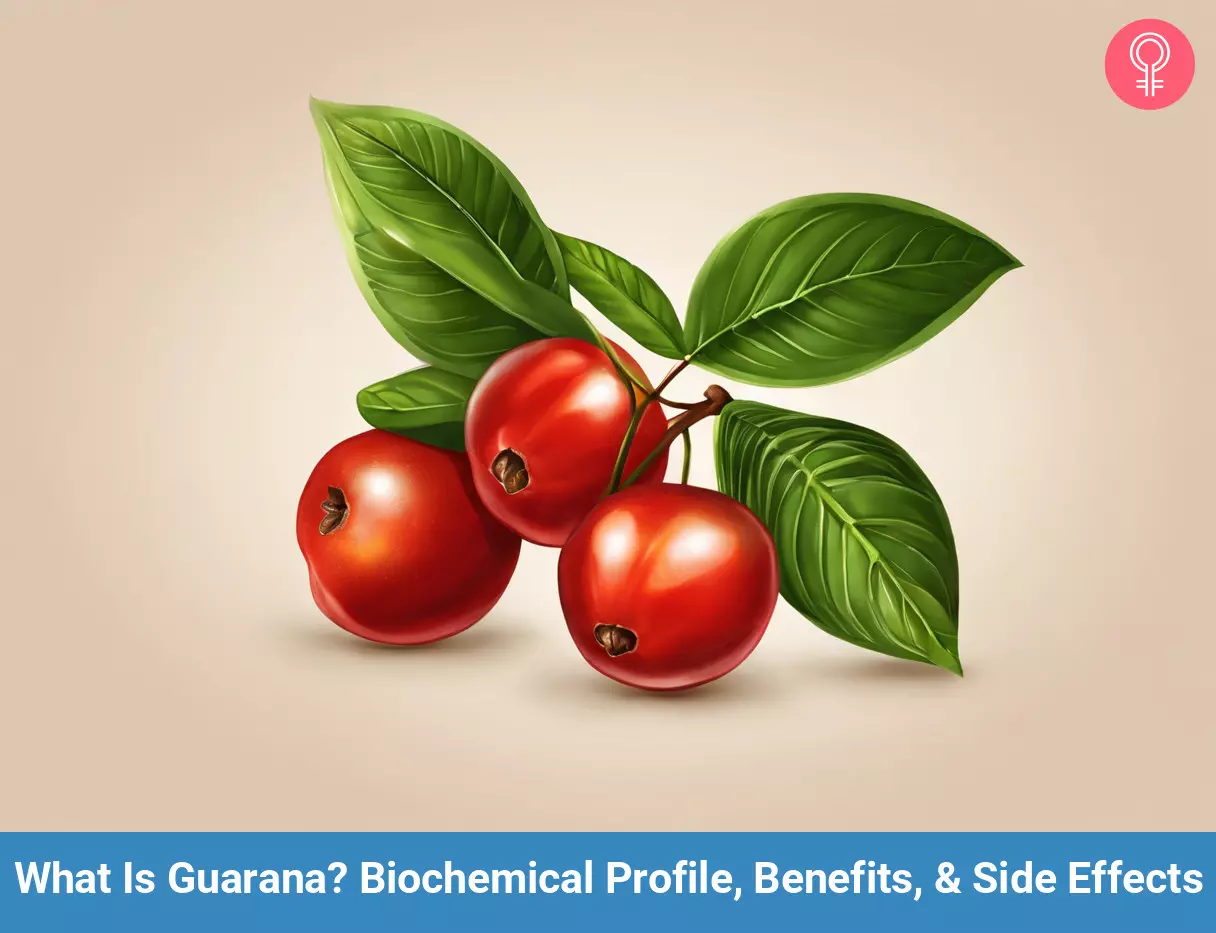
Image: Stable Diffusion/StyleCraze Design Team
Want to know more about the surprising benefits of guarana? Click on this video to learn how this superfood can help improve your health.
Personal Experience: Source
StyleCraze's articles are interwoven with authentic personal narratives that provide depth and resonance to our content. Below are the sources of the personal accounts referenced in this article.
i. Pop! South American Sodashttps://eatwine.wordpress.com/2010/07/05/pop-south-american-sodas/
References
Articles on StyleCraze are backed by verified information from peer-reviewed and academic research papers, reputed organizations, research institutions, and medical associations to ensure accuracy and relevance. Read our editorial policy to learn more.
- “Acute effects of a herb extract formulation…” Appetite, Elsevier
- “Modulatory Effects of Guarana…” Nutrients, US National Library of Medicine
- “Guarana Provides Additional Stimulation Over…” PLoS One, US National Library of Medicine
- “Effects of a commercial product containing guaraná…” Journal Of Negative Results In Biomedicine, US National Library of Medicine
- “Guarana (Paullinia cupana) Extract Protects Caenorhabditis elegans…” Oxidative Medicine and Cellular Longevity, US National Library of Medicine
- “Evaluation of Antibacterial, Antineoplastic, and Immunomodulatory…” Evidence-based Complementary and Alternative Medicine, US National Library of Medicine
- “Guarana supplement” NCI Drug Dictionary, National Cancer Institute
- “Guarana (Paullinia cupana) Improves Anorexia…” Journal of Dietary Supplements, US National Library of Medicine
- “Guarana (Paullinia cupana) improves fatigue in breast…” Journal of Alternative and Complementary Medicine, US National Library of Medicine
- “Paullinia cupana Kunth (Sapindaceae): A review of…” Journal Of Medicinal Plants Research, academicJournals
- “Protective effects of guarana (Paullinia cupana) against methotrexate‐induced intestinal damage in mice”, Food Science & Nutrition, US National Library of Medicine
- “The effects of caffeine on ventilation and pulmonary function during exercise: an often-overlooked response”, The Physician and Sportsmedicine, US National Library of Medicine
- “Guarana” Kelvin Anderson, University of Colorado Denver
- “Cardiovascular adverse reactions associated…”Journal of Herbal Pharmacotherapy, US National Library of Medicine
- “Guarana – an overview”ScienceDirect Topics
- “Guaraná’s Journey from Regional Tonic to Aphrodisiac and Global Energy Drink” US National Library of Medicine
- “Paullinia cupana: a multipurpose plant – a review ”Brazilian Journal Of Pharmacognosy, ScienceDirect
Read full bio of Alexandra Dusenberry
Read full bio of Swathi Handoo
Read full bio of Ravi Teja Tadimalla
Read full bio of Aparna Mallampalli







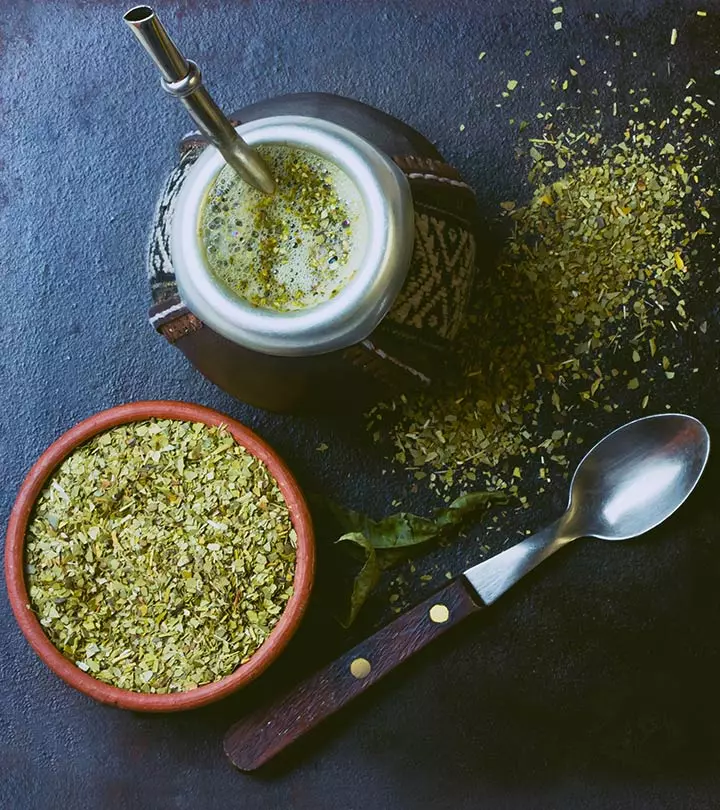

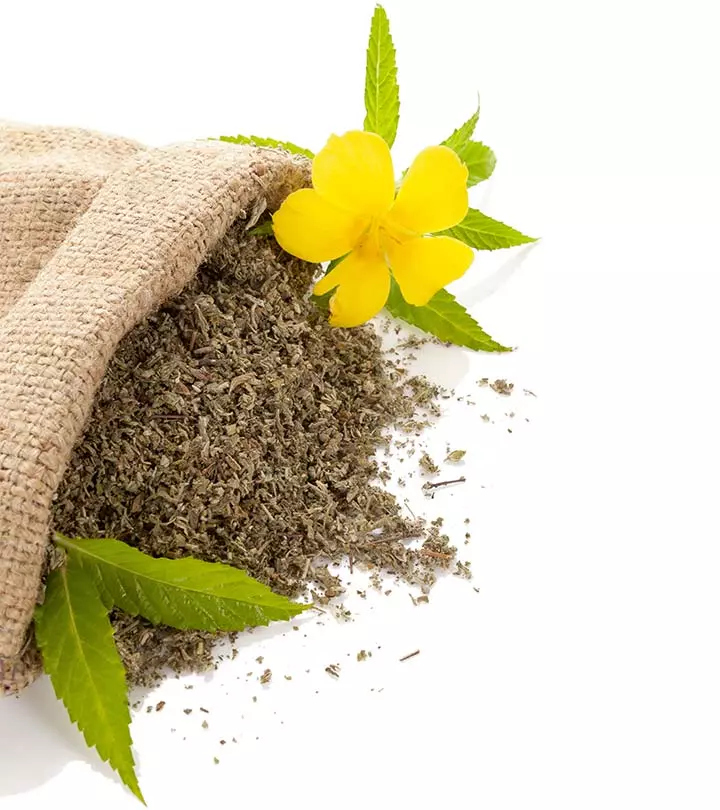

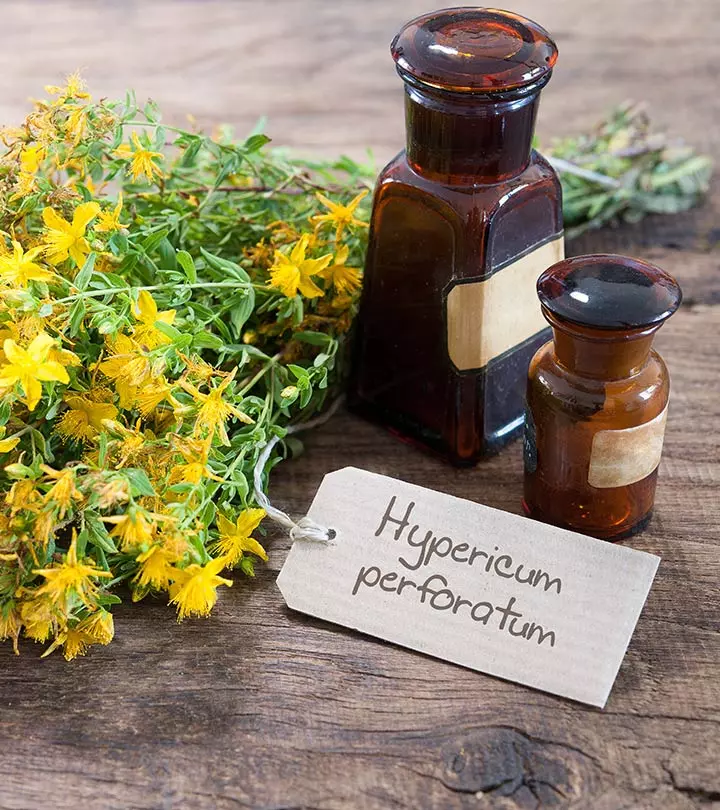
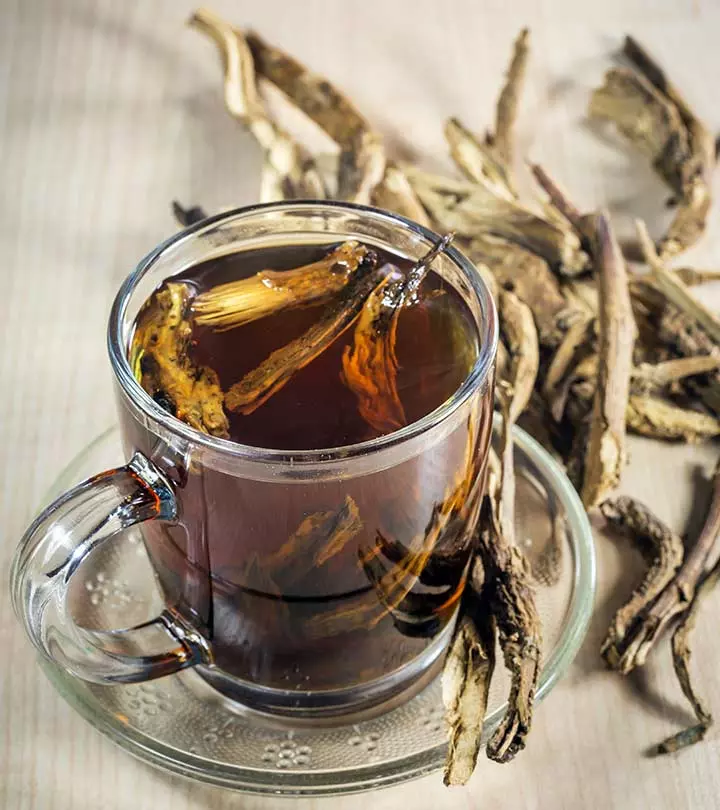
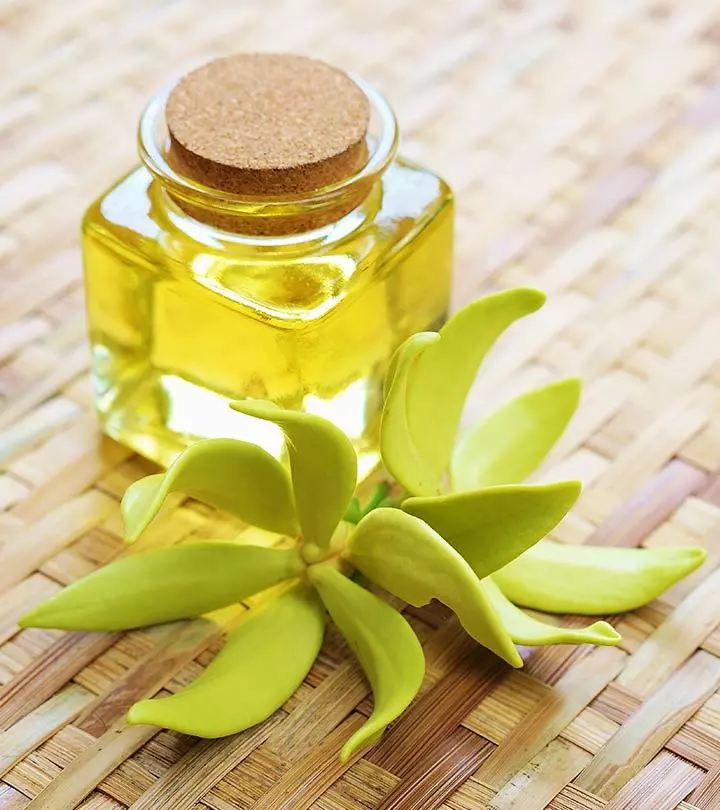
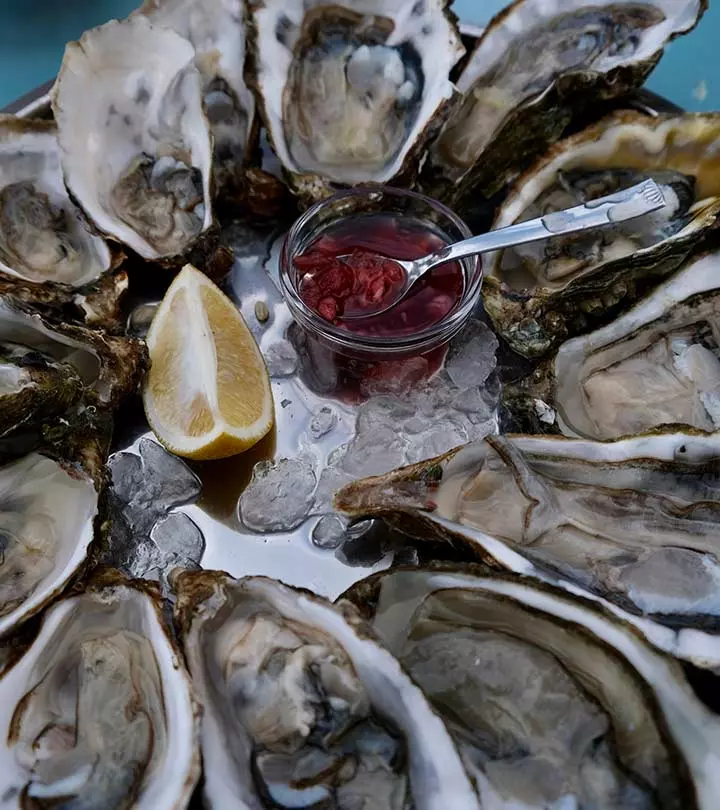


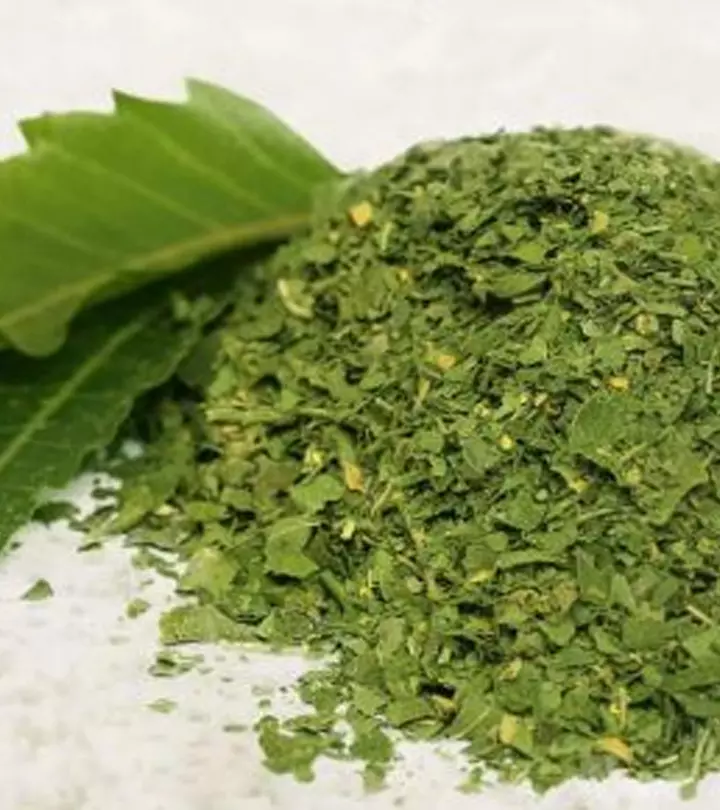
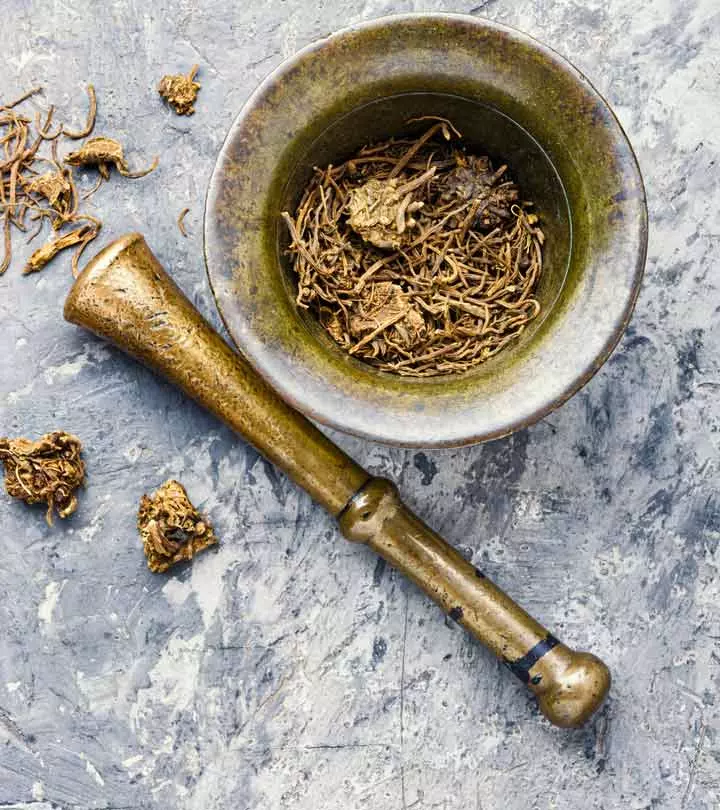
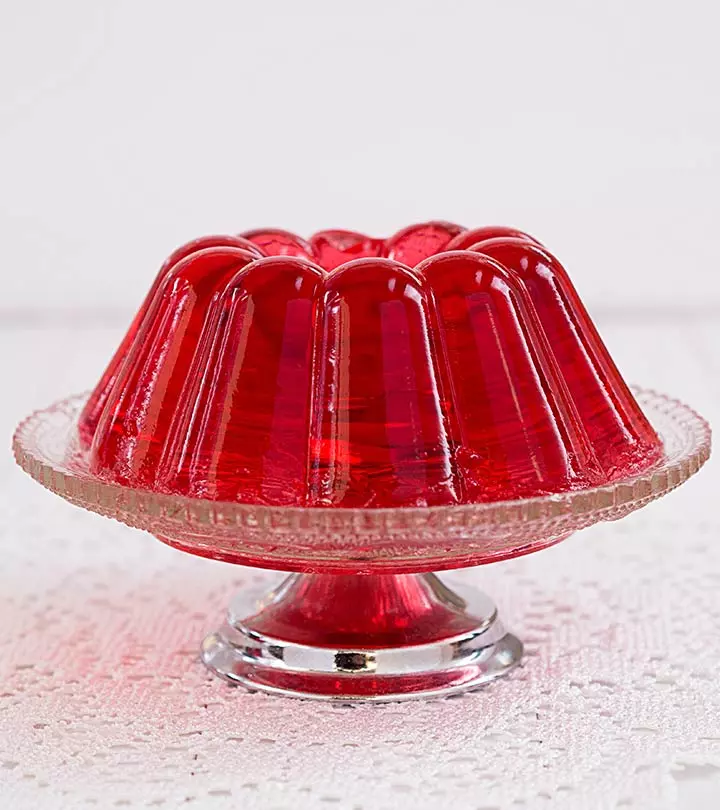
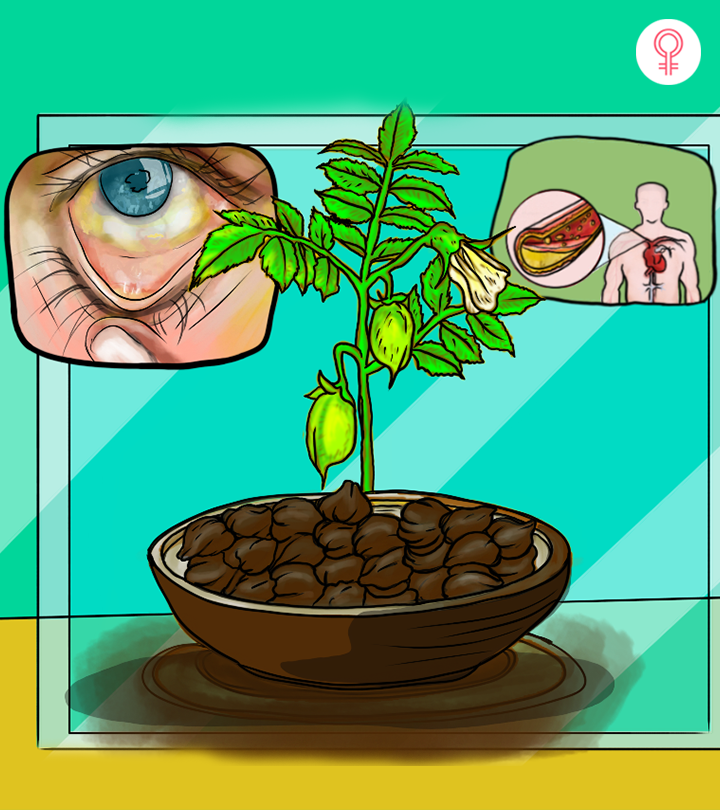


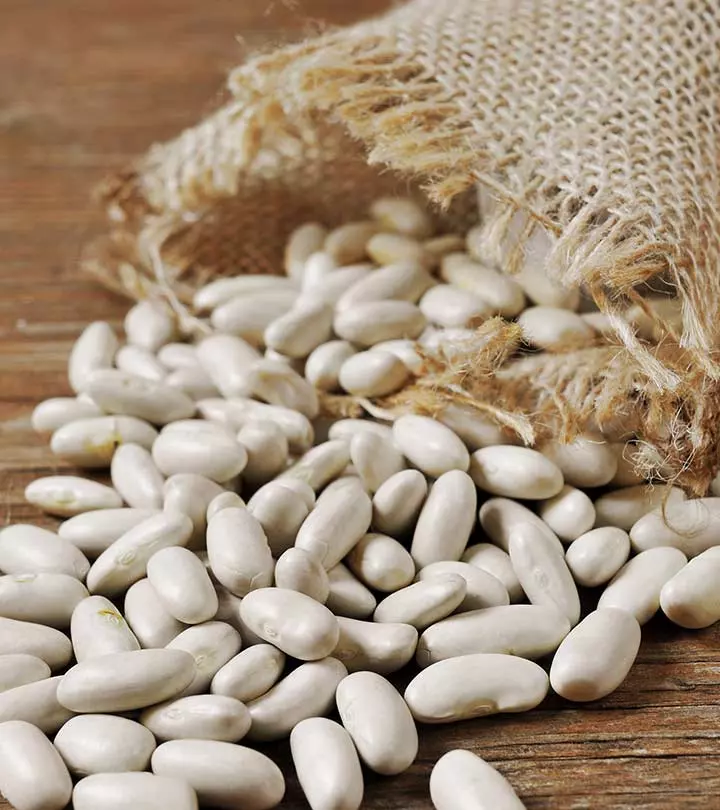
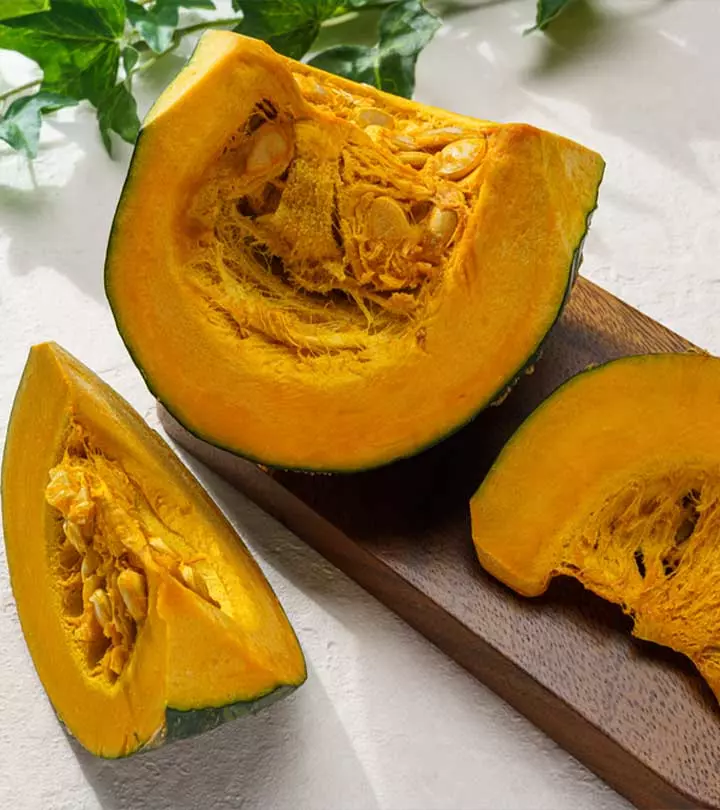
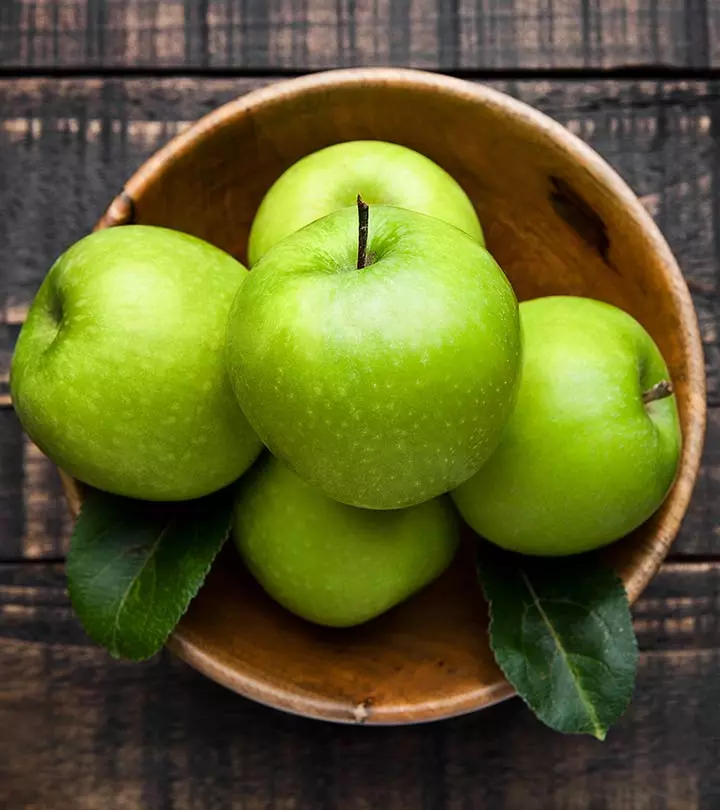
Community Experiences
Join the conversation and become a part of our empowering community! Share your stories, experiences, and insights to connect with other beauty, lifestyle, and health enthusiasts.